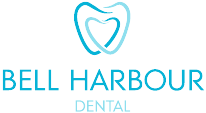FAQs
We offer general dentistry and specialty treatments such as dental implants, tooth extractions, clear aligners, and root canal treatment. Our full-service dental practice in Seattle ensures that people improve their dental health and minimize frequent restorative treatments. Our preventive care services work to ensure we catch and prevent or stop dental diseases before they bring more damage. Additionally, we provide periodontal treatment, including scaling and root planing to prevent and treat gum disease or periodontitis. Visit us to find out what other services we offer.
Yes, we accept various insurance plans for patients with dental insurance. We accept Delta Dental, MetLife, Cigna, Humana, and Delta. We want every patient to maximize their benefits and get the best, personalized treatment available. Our range of payment options, including credit cards, CareCredit®, and insurance like Delta Dental, ensure that our patients can conveniently pay for their dental care. We know that having a limited number of acceptable dental insurance can prevent many patients from enjoying our services. Feel free to contact us to see what insurance we accept for our dental patients.
We offer sedation dentistry to improve patients' experience in our dental office. We understand that many people fret about visiting dental offices. Our sedation dentistry helps get rid of anxiety and fear. It helps patients remain calm while having their treatment or procedure performed. We use sedation, such as oral conscious sedation and IV sedation. For most of the treatments involving kids that require the use of sedation, we utilize laughing gas.
Yes, we provide teeth whitening as one of our mainstream services in cosmetic dentistry. We have in-office whitening that our dentist does in our office. The chairside whitening takes about an hour, depending on how many shades a patient wants to lighten their teeth. Apart from the in-office whitening, we can also organize take-home trays with whitening gel to use at your own pace. We, however, supervise these home treatments so that you obtain the desired outcomes.
In addition to accepting insurance, we provide payment plans to our patients. We want all our patients to be able to receive the dental care they require without being restricted by financing options. We have third-party financing like CareCredit that we partner with to ensure you can finance your treatment comfortably. Again, we have options like cash, debit card, and even credit card.
Since dental emergencies can arise during the most unexpected hours, especially at night or on the weekend, you need to have the contacts of an emergency dentist available during these times. Emergency dentists can take care of urgent and emergency dental issues like toothaches, abscesses, and knocked-out teeth when they arise when other dental offices are closed. A Saturday dentist is handy when you need dental treatment over the weekend. Talk to us if you require emergency dental care at our office.
Your first trip to our clinic is the time for our dentist to know much about you. We want to know your medical and dental history. We keep this information in our records to reference it easily whenever you return. We do exams, including X-rays, and thoroughly inspect your mouth and oral cavities. Furthermore, we ask you about any dental issues you have suffered in the past and the kinds of treatments you received. Our dentist or hygienist will also clean your mouth, ensuring you go home with a fresh breath and clean gums and teeth.
Even with the stringent oral hygiene practices you do at home, including flossing twice daily and brushing a day thrice for not less than two minutes, it is likely that you will have biofilm and tartar forming. We want our patients to come to us every six months because we want to clean their mouths to remove the tartar on their teeth. Our hygienist or dentist will also clean deep in the pockets within areas where you don't usually reach with your at-home dental hygiene routine. Moreover, our dentist does X-rays and exams to detect any hidden oral disease or other problems in your mouth.
We advise our patients to use soft-bristled toothbrushes since they are gentle on the gum tissue and teeth. Hard bristled brushes wear down the enamel and irritate the gums, and can create problems like sensitivity and damage to the enamel and gums. Once you have used your toothbrush for about three months, you should replace it. In most cases, it is ineffective or has frayed to a point where it is causing damage to the mouth. You can get an interdental brush if you have problems with food particles sticking between the teeth. With flossing, an interdental brush can help remove debris, leftovers, and biofilm from these hard-to-reach areas.




